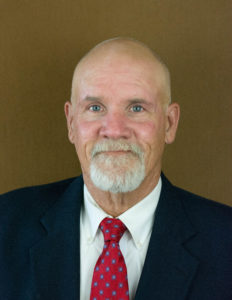Greetings and salutations! This month’s installment we are going to attempt, rather I am going to attempt, clarification of the hottest topic for the last two years—Covid 19! The topic can only be categorized as a cluster monkey. My goal is to rationally attempt some kind of synthesis of the information out there. It is a daunting task due to: 1. the politicization, 2. data that is sketchy or incomplete, 3. reports of virologists vs. medical doctors, etc. And the list goes on.
Other than the established and accepted practice of prophylactic measures of the CDC, the rest is as varied as there are opinions. The daily news and debates illustrate this point.
As you’ve seen on all news coverages, as scientists and doctors try to cookie-cut all environments and applicativity, across all sectors—business, private practice, combined with enforcement—the end results have not suggested practicality, nor even any sense. Hence the confusion.
It appears currently that there are two kinds of people involved: those that have had Covid 19 and its variants and those that are going to have it. I myself went 2 years and 1 month before catching the omicron myself. Going on my physician’s recommendation, I already had both vaccines, as well as a booster, and had exercised all protocols (masks, social distancing, no social life at all) required, and I still contracted the omicron. I do not regret the choices I made because they came on the recommendation of my physician, whom I trusted. We had lengthy discussions and I chose the vaccine route. I do not begrudge the individuals that chose not to.
As with safety—regardless of rules, mandates, and regulations—it comes down to choices and acceptable risk. Every individual is wired differently. I opted, largely due to my profession, to take the route of what I believe to be best practices for myself. I chose to follow
guidelines. And, as is the case in the oil and gas industry, the rules for the most part are based on accurate information and statistics.
Accurate information is sometimes elusive, even with the government. I contend that best practices, research, accurate information, and practicality provide adequate avenues to reduce risk! Even so, unless there is oversight 24/7, there are individuals who take exception to the best practices. Somewhere in the mix of things, there are those who roll the dice and take their chances. This phenomenon is called shortcuts. Sometimes, as we’ve all experienced, the payoff is there. It’s a risk and/or a reward kind of situation. It just depends on if you are more inclined to gamble with risk payoff vs loss.
The same applies to the ‘rona. If you are the sole breadwinner for your family of five, caution might be the best consideration for your circumstance. If you are young and single with a penchant for adventure, then go ahead and go for it, but plan for both outcomes. Safety comes down to judgment and what you are willing to risk.
In conclusion, there are no guarantees.
- Research the sources of information.
- Research the data.
- Follow state and federal guidance.
- Research options.
- Avoid political talking points.
- Trust your instincts.
- Be flexible.
- Follow the guidelines that you think everyone can live with, literally and figuratively.
Doctors are highly educated and trained. However, they still call their profession a “practice.” It’s not an exact science.
So until it is an exact science, it will continue to be best practices.
Safety is like baseball. It’s not how many hits you have; it’s how many times you reach home safely. —Dusty
____________________________________________________________________________________________________
Dusty Roach is a safety professional based in Midland. He is also a public speaker on subjects of leadership and safety, and he maintains a personal website at dustyroach.com.










